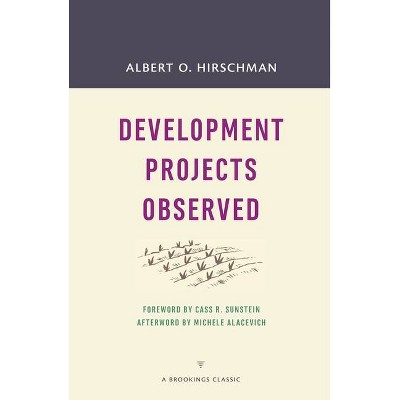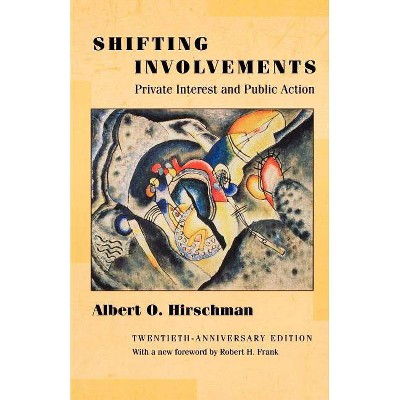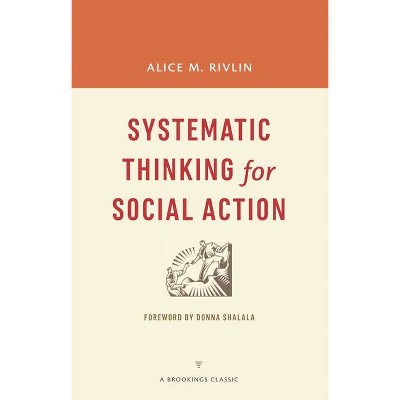Development Projects Observed - (Brookings Classic) by Albert O Hirschman (Paperback)

Similar Products
Products of same category from the store
AllProduct info
<p/><br></br><p><b> About the Book </b></p></br></br><p>Originally published in 1967, the modest and plainly descriptive title of <i>Development Projects Observed</i> is deceptive. Today, it is recognized as the ultimate volume of Hirschman's groundbreaking trilogy on development, and as the bridge to the broader social science themes of his subsequent writings. Though among his lesser-known works, this unassuming tome is one of his most influential.</p> <p>It is in this book that Hirschman first shared his now famous Principle of the Hiding Hand. In an April 2013 <i>New Yorker</i> issue, Malcolm Gladwell wrote an appreciation of the principle, described by Cass Sunstein in the book's new foreword as a bit of a trick up history's sleeve. It can be summed up as a phenomenon in which people's inability to foresee obstacles leads to actions that succeed because people have far more problem-solving ability that they anticipate or appreciate.</p> <p>And it is in <i>Development Projects Observed</i> that Hirschman laid the foundation for the core of his most important work, <i>Exit, Voice, and Loyalty</i>, and later led to the concept of an exit strategy.</p><p/><br></br><p><b> About the Author </b></p></br></br><p> <b>Albert O. Hirschman</b> (1915-2012) was an influential economist who is widely regarded as one of the twentieth century's most extraordinary intellectuals. His other books include <i>Exit, Voice, and Loyalty: Responses to Decline in Firms, Organizations, and States</i> (Harvard University Press, 1970) and <i>The Strategy of Economic Development </i>(Yale University Press, 1958).</p>
Price History
Price Archive shows prices from various stores, lets you see history and find the cheapest. There is no actual sale on the website. For all support, inquiry and suggestion messages communication@pricearchive.us




















